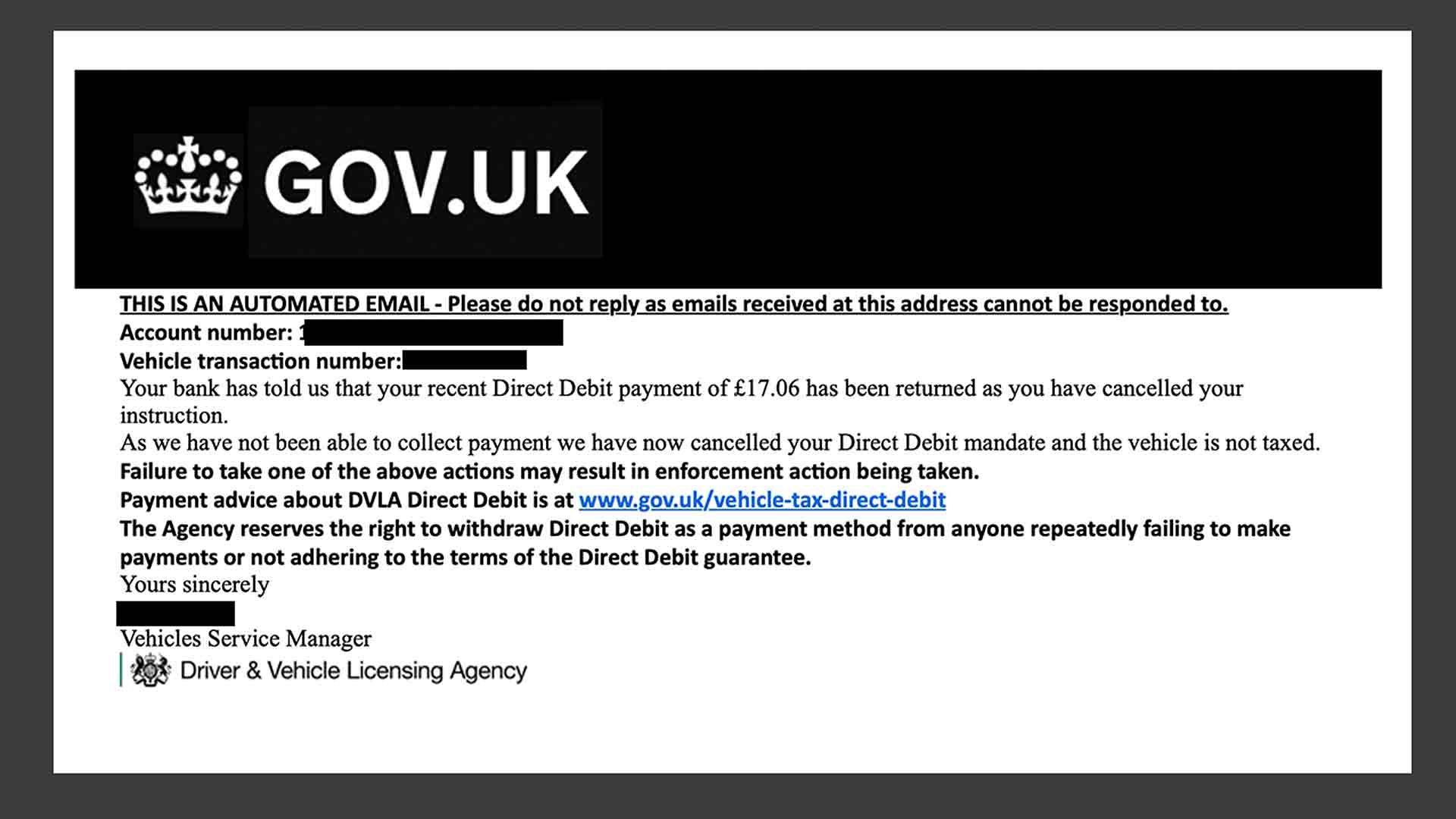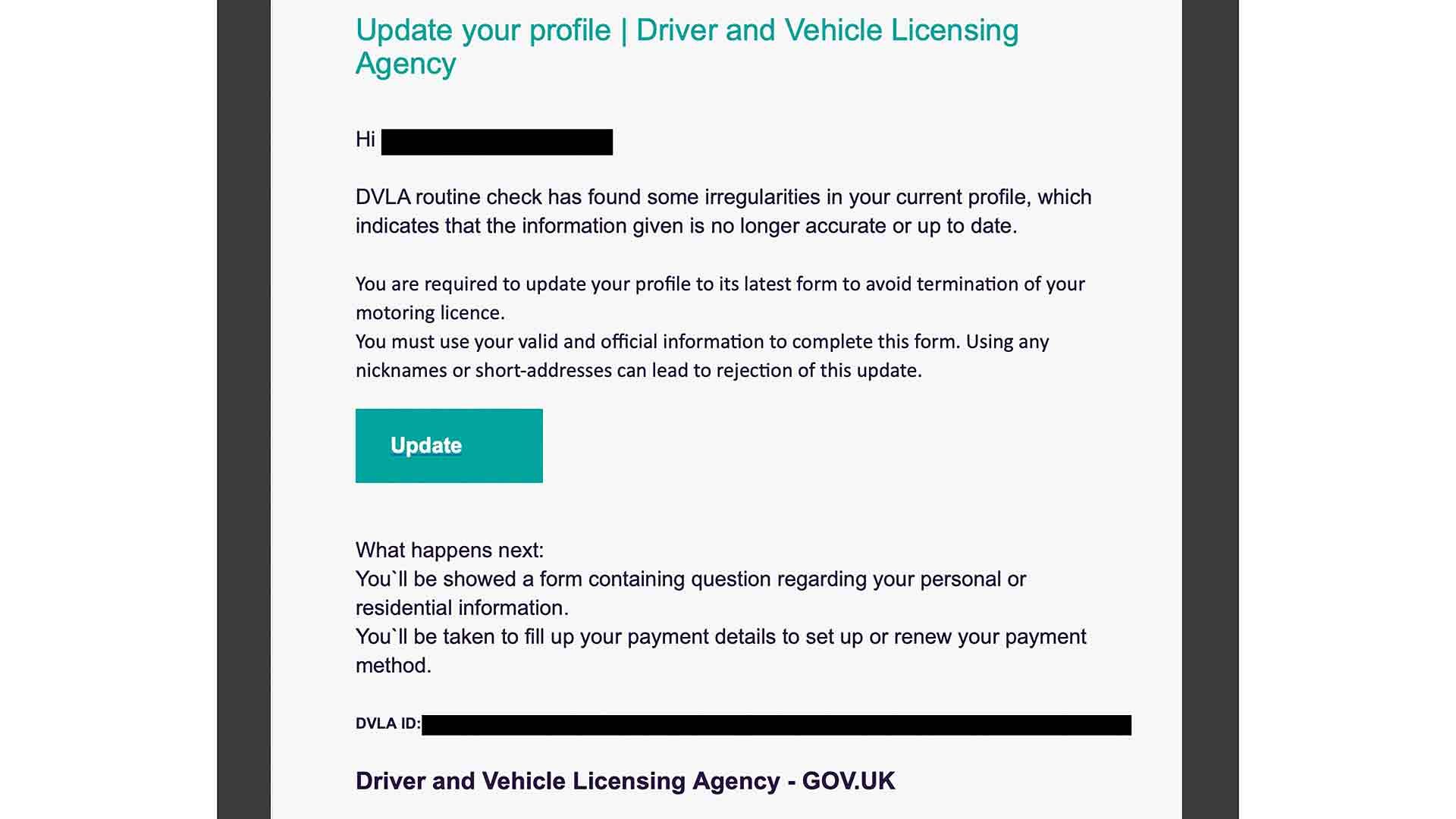
Motorists are reporting a dramatic rise in the number of scam emails, texts and calls pretending to be from the DVLA – so the organisation has released images of the latest tricks to be aware of.
The DVLA says there has been a 603 percent increase in motorists reporting scams, with email scams being particularly prevalent.

Text message scams actually declined in number, although they remain a problem.
DVLA officials say the organisation never asks for bank details over email, and never sends text messages about vehicle tax refunds.
The only place to access official information on DVLA and its services is GOV.UK.

“Scammers are becoming more persistent in their efforts to target motorists,” said DVLA head of fraud policy investigation Phil Morgan.
“These more recent scams may at first seem legitimate, but they are designed to trick motorists into providing their personal details.
“We never ask for bank or credit card details via text message or email, so if you receive something like this, it’s a scam.”
Mr Morgan says motorists should report any suspicious emails to the National Cyber Security Service.
Any suspicious text messages should be forwarded to their network provider on 7726. The service is free of charge.
How motorists can stay safe online
- Never share driving licence images and vehicle documents online
- Never share bank details or personal data online
- Avoid websites offering to connect to the DVLA contact centre
- Only use GOV.UK when searching for DVLA contact details
- If you think you have been scammed, immediately report it to the police via Action Fraud
ALSO READ:
Have car number plates changed due to Brexit?
Used car buyers in Northern Ireland face price rises due to Brexit